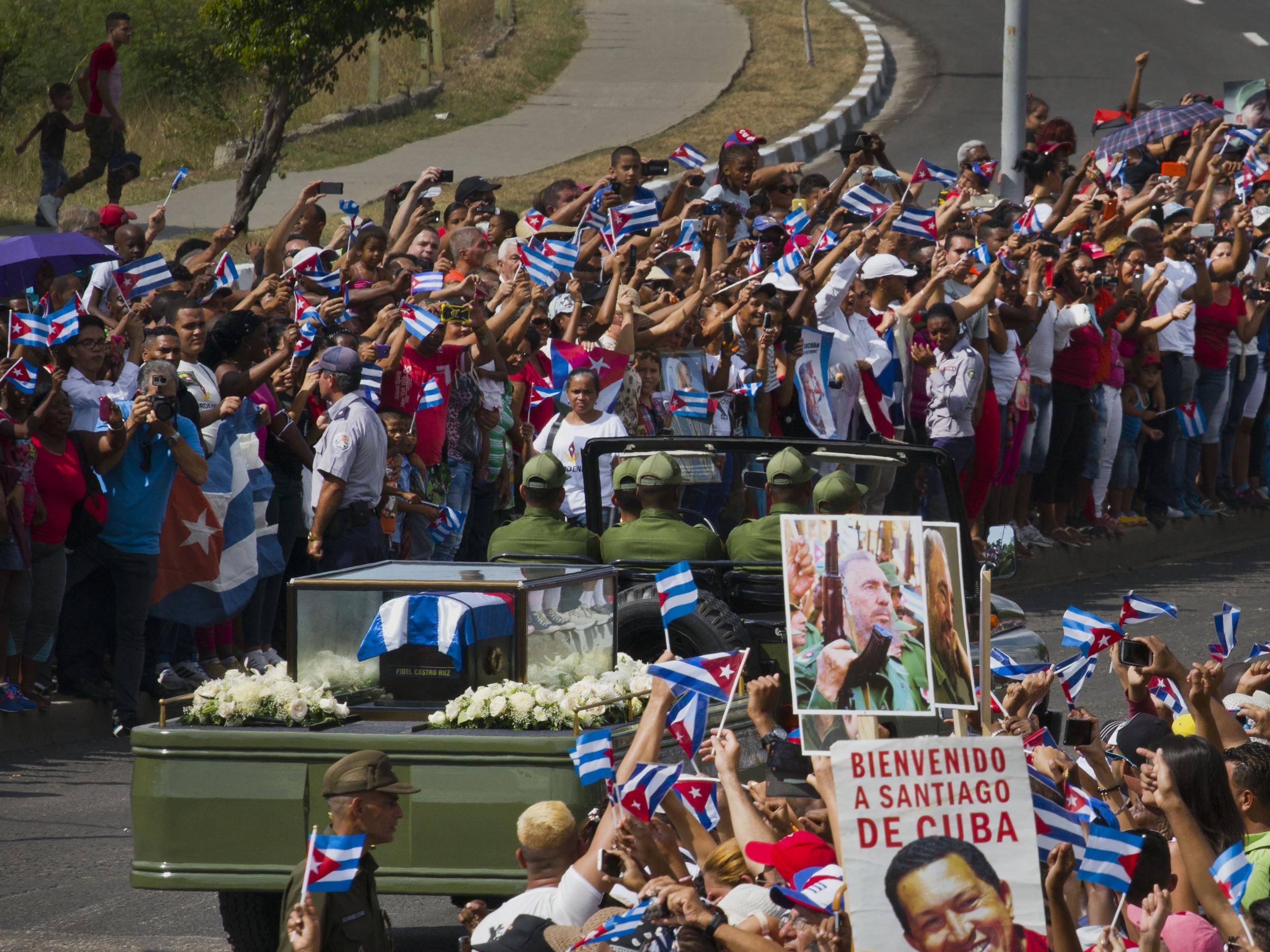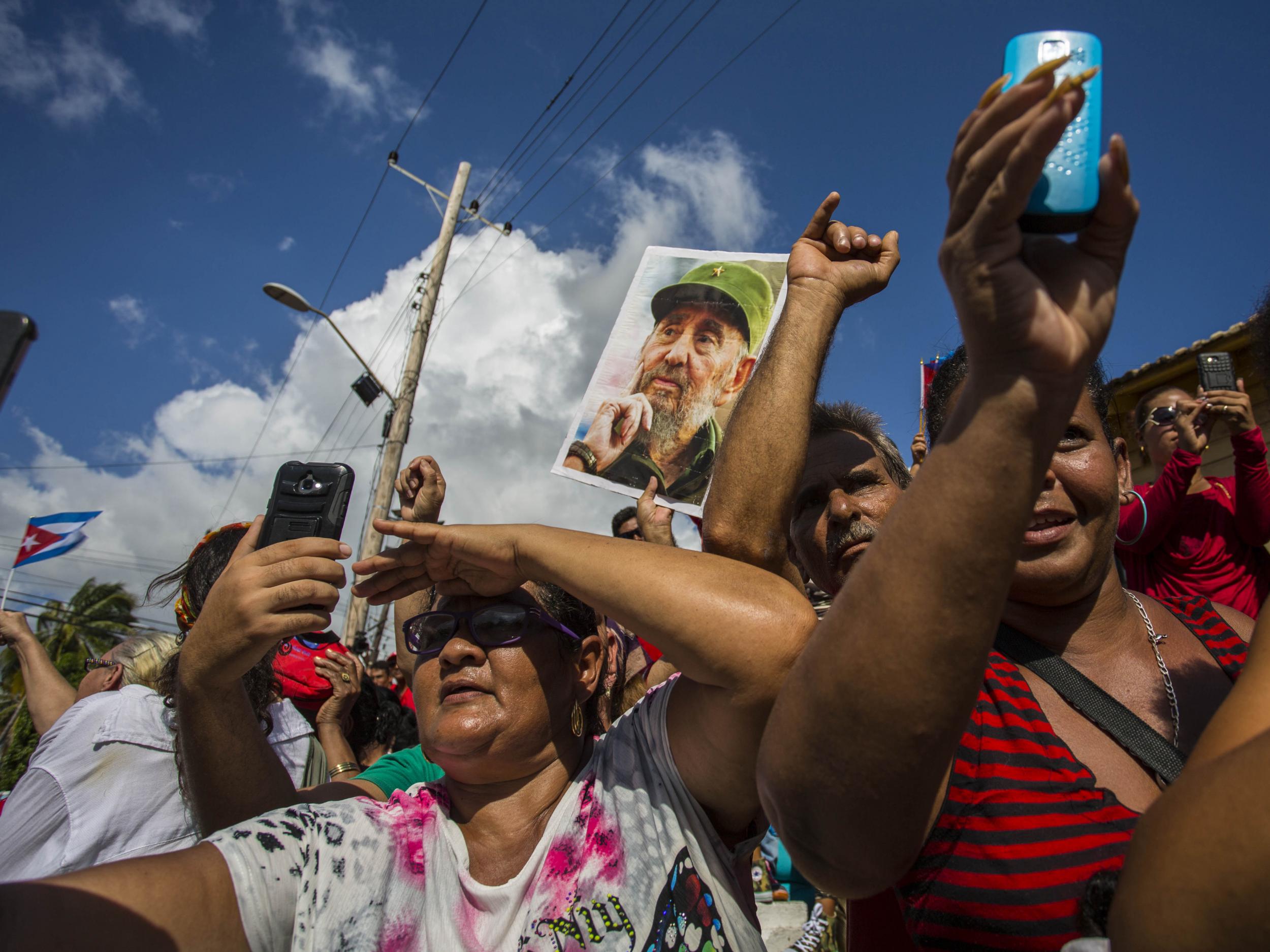Fidel Castro’s ashes arrive in Santiago after four-day journey across Cuba
The late president declared the victory of the Cuban Revolution from a Santiago balcony in 1959

Your support helps us to tell the story
This election is still a dead heat, according to most polls. In a fight with such wafer-thin margins, we need reporters on the ground talking to the people Trump and Harris are courting. Your support allows us to keep sending journalists to the story.
The Independent is trusted by 27 million Americans from across the entire political spectrum every month. Unlike many other quality news outlets, we choose not to lock you out of our reporting and analysis with paywalls. But quality journalism must still be paid for.
Help us keep bring these critical stories to light. Your support makes all the difference.
Fidel Castro's ashes have arrived in the eastern city of Santiago, concluding a four-day journey across Cuba.
Thousands of people gathered shouting “Fidel! I am Fidel!” as the jeep pulling a cedar urn containing his ashes rolled into the island's second-largest city.
The 90-year-old former president, who died on 25 November, declared the victory of the Cuban Revolution from a Santiago balcony in 1959.
Children in school uniform, veterans in military fatigues and entire families waved Cuban flags as a series of Castro speeches played on a giant screen, in scenes of public adulation seen elsewhere along the 900-kilometer (560-mile) trip from Havana.
Huge crowds have been shouting his name and lining the roads to salute the funeral procession across Cuba, particularly in rural eastern regions.
The caravan passed in front of the Moncada barracks – scene of his first armed uprising in 1953 – and headed to Revolution Square for an evening rally.
Castro has been hailed in almost religious terms since his death, with the communist party newspaper Granma calling him the “eternal comandante.”

His ashes will be interred Sunday morning, ending a nine-day mourning period, and he will be remembered in a nationally-televised service led by his brother, President Raul Castro, on Saturday.
Raul Castro, who took over when his brother fell ill in 2006, will deliver a much-awaited speech during the massive tribute with foreign dignitaries, ranging from presidents to Argentine football legend Diego Maradona, who called Castro his “second father.”
Castro's death has fuelled discussions about his divisive legacy and the direction the country may take without the omnipresent leader, who ruled for almost half a century.
Tearful supporters have cheered him for the free education and health care he developed on the island, while detractors call him a brutal dictator who imprisoned dissidents and ran the economy to the ground.
After Fidel is laid to rest, all eyes will turn to Raul Castro's next move. He has implemented modest economic reforms, vowed to step down in 2018 and restored diplomatic ties with the United States.
“He has been the father of all Cubans and all the people in need in the world,” said Margarita Aguilera, the 54-year-old director of a state tobacco company who painted the words “farewell, comandante” on a white stone in front of a house.
The government had already led a huge rally with two dozen foreign presidents in Havana on Tuesday, but Santiago holds a special place in Castro's life.
“This is the cradle. Everything started here,” said Victor Rivera Coca, 52, a cook who came from the town of Las Tunas, three hours away by car, with his wife and three-year-old son.
On July 26, 1953, the Castro brothers launched a failed attack on the Moncada military barracks in Santiago.

Although the rebels were jailed, the attack put Castro on the map and he would eventually go into exile in Mexico.
“History will absolve me,” the trained lawyer famously said at his trial.
Dissidents have kept a low profile during the commemorations, calling off regular protests, although they plan to resume their demonstrations after Castro's burial.
Subscribe to Independent Premium to bookmark this article
Want to bookmark your favourite articles and stories to read or reference later? Start your Independent Premium subscription today.
Join our commenting forum
Join thought-provoking conversations, follow other Independent readers and see their replies
Comments